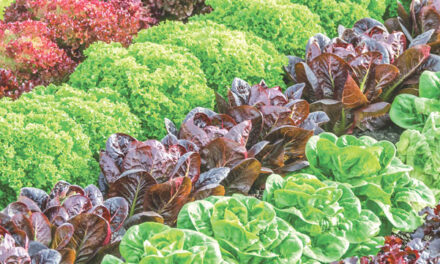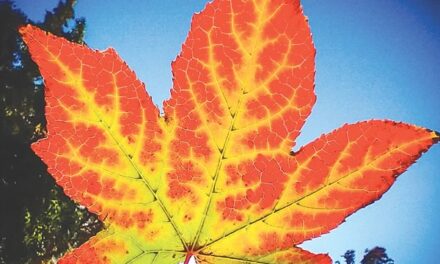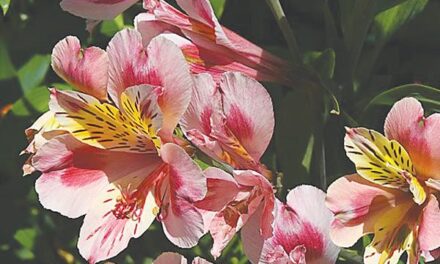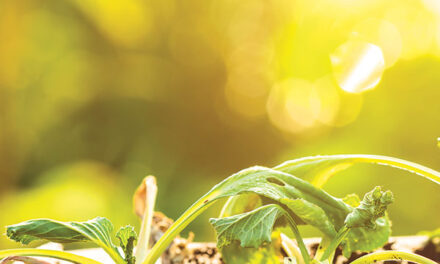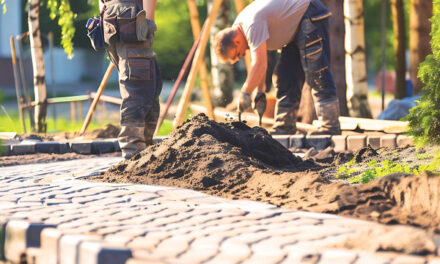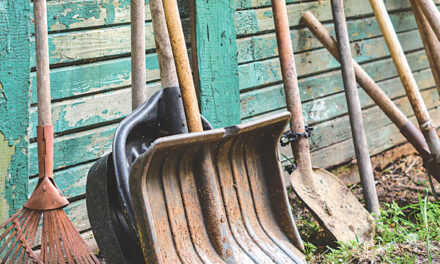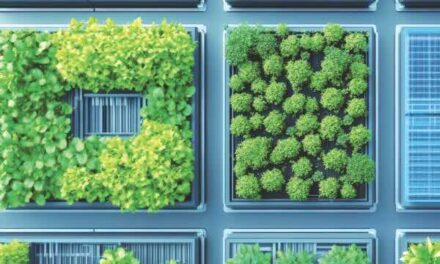If 2020 seemed like a daily flat tire, begin the New Year with a nutritious edible garden and exercise. Gardening is Mother Nature’s Peloton. Who needs Jenny Craig when homegrown fresh produce is stuffed with healthy low-calorie options?
Growing the right foods may even save or extend your life. Fred Hoffman, Sacramento’s highest-profile gardener, confronted a life-threatening health crisis in 2012. He discovered he had Type 2 diabetes while preparing for quadruple-bypass heart surgery.
It was an abrupt life-or-death wakeup call for the producer/host of the “Garden Basics with Farmer Fred” podcast and radio programs, “The KFBK Garden Show” and “Get Growing with Farmer Fred” on Talk 650 KSTE.
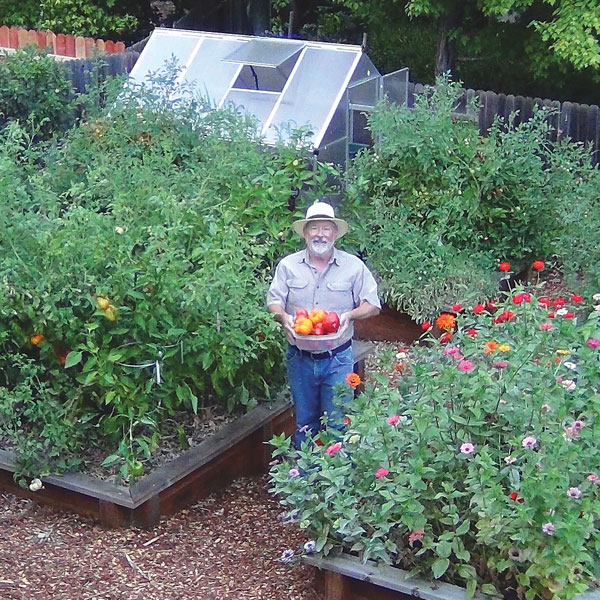
Hoffman studied medical research and chose a personal road to recovery. He waved bye-bye to candy, cookies and ice cream, and added more fruits, vegetables and foods such as sprouted bread to his diet. Fiber, both soluble and insoluble, became his daily companion.
“My goals were to eat at least 35 grams of fiber a day and fewer than 45 grams of added sugar per day,” he says.
An experienced gardener, he tweaked his planting choices to grow fruits and vegetables at the top of the nutrient and fiber-rich charts. All his produce is organically grown.
“At first, I stayed on my medications, but began eating correctly and doing regular exercise,” says Hoffman, who also became a cycling and weight-training advocate.
“Much of the research I read discussed the good things that adding soluble fiber to your diet can do for the heart and diabetes control. And I read horror stories about how a diet filled with added sugars, combined with a sedentary lifestyle, can send you back to the hospital.”
Eight months after surgery, Hoffman had shed 60 pounds, narrowed to a 32-inch waist, and weaned himself off seven prescription medications. He says his endocrinologist and cardiologist were astounded by the rapid turnaround.
“I’ve been prescription free since,” he says.
A high-fiber diet, according to the Mayo Clinic, helps control blood-sugar levels and cholesterol and fats from being absorbed into the blood stream. It aids waste elimination and weight management.
Artichokes, blueberries, peas, apricots, beans (pinto, white and kidney), carrots, oranges and eggplant are excellent sources of soluble fiber, the type of fiber that dissolves in water. Insoluble fiber does not dissolve in water and mostly is skins and seeds of plants. All fiber is good for you.
Blueberries, high in antioxidants, potassium and vitamin C, are considered a “superfood.” Fortunately, they are easy to grow, even in large containers. Tasty and productive varieties to consider include Reveille, O’Neal, Jewel, Bluecrop and Emerald.
So-called superfoods are not determined by specific criteria, according to the American Heart Association, but are packed with nutrients that combat deadly diseases. Kale, beans and sweet potatoes often are considered superfoods.
Other highly nutritious edibles commonly grown in the Sacramento area include tomatoes, garlic, ginger, spinach, beets and peppers. Adding healthier garden-grown fruits and vegetables to your diet does not have to be intimidating.
“For new gardeners, start small,” Hoffman says. “Pick fruits and vegetables you know your family will eat and then only plant a few of each.”
He recommends two blueberry plants, two or three tomato plants (including one cherry tomato), a couple of pepper plants and three or four fruit trees. Add one zucchini, which will provide enough squash for an entire neighborhood.
Two excellent informational sources for those wishing to improve their diet and overall health with an edible garden in 2021 are the Master Gardeners of Sacramento County website at sacmg.ucanr.edu and Hoffman’s site at farmerfred.com. These two websites are rich with scientifically researched, how-to gardening information.
Start the New Year with an edible garden and become your own nutritionist and personal trainer. Growing your own is a wholesome and healthful New Year’s resolution, one you may decide to renew for the rest of your life.
Dan Vierria is a University of California Cooperative Extension Master Gardener for Sacramento County and former Home & Garden writer for The Sacramento Bee. He can be reached at masterg29@gmail.com. For answers to gardening questions, contact the UCCE Master Gardeners at (916) 876-5338, email mgsacramento@ucanr.edu or visit sacmg.ucanr.edu. Follow us on Facebook, Twitter and Instagram: @insidesacramento.




